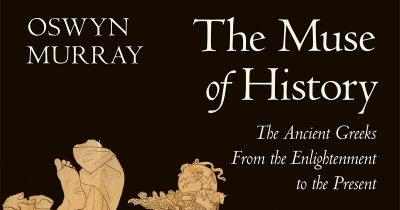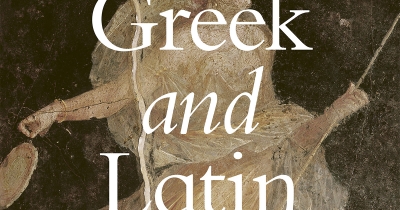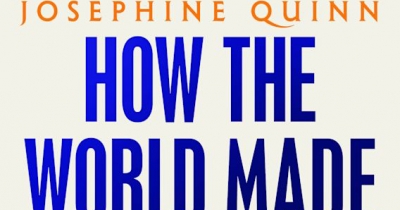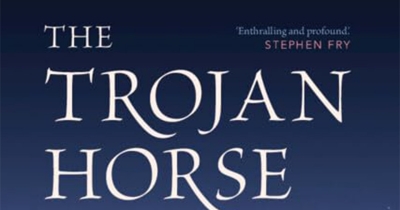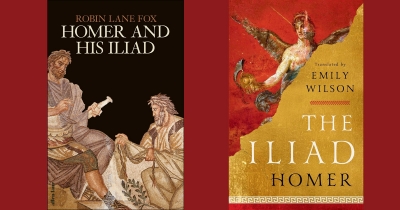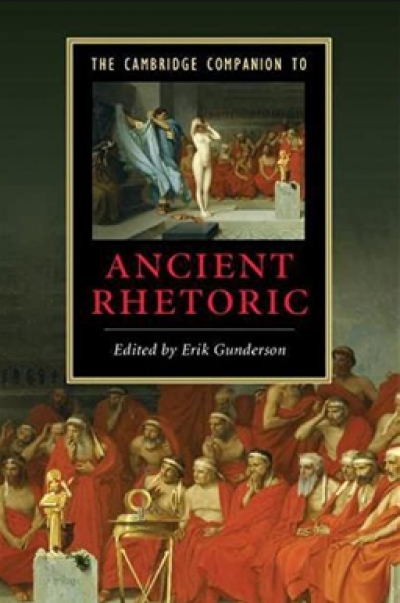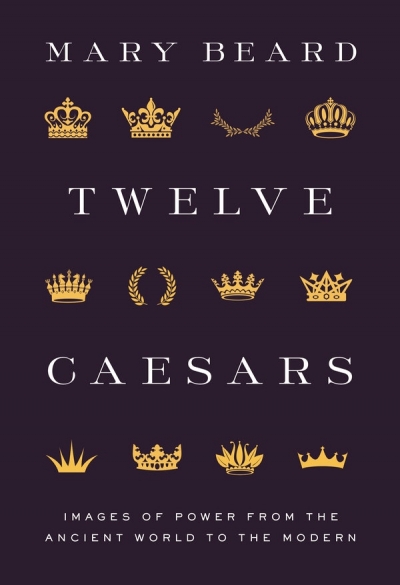Classics
The Odyssey by Homer, translated from ancient Greek by Daniel Mendelsohn
After the horror of war, the difficulty of return – angry seas, lost comrades, plotters at home. Daniel Mendelsohn teaches at Bard College and writes for The New York Review of Books. His compelling new translation of the Odyssey acknowledges the themes of this story have been repeated over millennia: separation, trials, and reunion.
... (read more)The Divine Comedy (1308-21) is an iconic narrative poem widely studied in schools and universities all over the world. At a time obsessed with the ‘here and now’, one may wonder, as a student of mine did in their anonymous evaluation of one of my units, why ‘we should still study a poet who died one thousand years ago’. By taking on the job of mapping the reception of the Divine Comedy, Joseph Luzzi’s book powerfully answers my student’s perplexed query.
... (read more)The Muse of History: The Ancient Greeks from the Enlightenment to the present by Oswyn Murray
Oswyn Murray’s book The Muse of History is subtitled ‘The Ancient Greeks from the Enlightenment to the present’, but this period of some three centuries represents virtually the whole of the modern historiography of Greece. The primary reason for this is one that is easily forgotten today: from the medieval to the early modern period, Greek civilisation, with its literature and art, was mainly understood from a Roman perspective. Even the gods were known by their adopted Latin names, and in an age when everyone who went to school could read and write Latin, a relatively small number were ever fluent in Greek.
... (read more)The Penguin Book of Greek and Latin Lyric Verse edited by Christopher Childers
In this impressive, 1,000-page volume, Christopher Childers has collected almost all that remains of the highly prized verses that were written in Greek and Latin to accompany performance on the lyre. This collection of ‘lyric verse’ provides a roll-call of the greatest poetic voices to emerge in antiquity. Some names, such as Sappho, are still familiar to many today. For others, such as Ibycus, their star has unjustly fallen and the fragments that survive tantalise us with their potential.
... (read more)How the World Made the West: A 4,000-year history by Josephine Quinn
Decolonising has reached the classics. Complexity, diversity, and entanglement are in. Greece and Rome are, well, out. The movement to ‘reclaim’ Antiquity began with noble aims: to emancipate the ancients from the prism of politics and war through which we like to see them, to emphasise the role of technology and trade in their lives, and to make women and people of colour visible among them again. Alas, decolonisation all too often seems to have descended into ugly arguments over restitution of artefacts (Elgin marbles, anyone?) or the skin shade of this or that Roman notable (Septimius Severus or St Hadrian of Canterbury, for example). Books such as Josephine Quinn’s are the sensible, balancing side of the equation, an antidote to so much virtue signalling and grievance mongering. Quinn’s is an ancient world decentred – provincialised, to invoke Dipesh Chakrabarty’s celebrated term. Greece and Rome remain, but must jostle with others for attention, space, and significance. The argument is simple. Antiquity was far more multipolar, dynamic, and integrated in reality than in the civilisational – and, indeed, civilising – narratives that Europeans since Petrarch have been telling themselves about it.
... (read more)The Trojan Horse and Other Stories: Ten ancient creatures that make us human by Julia Kindt
The gods of the Greeks are uniquely anthropomorphic; they are not only imagined with human bodies but with thoughts and feelings largely similar to our own, except for the fact that they cannot grow old or die, and are thus spared the greatest part of human pain and suffering. They can feel anger at the misbehaviour, or pity for the fate, of mortals, as when Zeus sees that his beloved son Sarpedon is about to be slain (Iliad 16.431 ff.), but compared to us, they ‘live at ease’ (Odyssey 5.122 and elsewhere).
... (read more)Homer and His Iliad by Robin Lane Fox & The Iliad by Homer, translated by Emily Wilson
Fans of the Iliad have been well served recently. Late last year saw the arrival of a new translation by Emily Wilson, whose earlier translation of the Odyssey (2018) was greeted with near universal acclaim, and it was joined by a new book about Homer and the composition of the Iliad by one of the leading scholars of Greek history, Robin Lane Fox. Both works encourage us to rethink our connections to this epic poem and its value for contemporary life. Set against a backdrop of clashing Greek and Trojan forces, what does this poem about the fatal sequence of events that emerges from a disagreement between two feuding warlords have to teach us?
... (read more)The Cambridge Companion to Ancient Rhetoric edited by Erik Gunderson
Towards the end of the fourth century BCE, the Athenian orator Hyperides found himself in a difficult predicament. His client, the notorious courtesan Phryne, was on trial for her life. Facing accusations of lewd impiety, should she be convicted, death almost certainly would follow. The case was going badly. The jurors were refusing to listen to his pleas. Their minds were made up. They couldn’t wait to convict. In one last desperate roll of the dice, Hyperides called up Phryne to the front of the courtroom and, with a sudden lunge, stripped her naked. The jury were shocked, stunned into silence. Seizing the moment, Hyperides renewed his pleas on her behalf. Overcome by her beauty, the jury acquitted her.
... (read more)There was a time not so long ago when research on ancient philosophy was confined largely to the study of the great philosophers Plato and Aristotle, and their antecedents. To take one example, in A History of Ancient Western Philosophy, published in 1959 by the respected scholar Joseph Owens, only fifty-one of 419 pages were devoted to post-Aristotelian philosophy, and only two pages to philosophy after the third century of our era. All of this has radically changed. For some time there has been a flourishing industry engaged in research on Hellenistic and early Imperial philosophy. Now the last frontier, the philosophy of late antiquity, is also yielding its secrets.
... (read more)We know exactly when the first image of a Roman emperor arrived in Australia. It came as part of the goods on board the ill-fated Batavia, which ran aground off the west coast of Australia on 4 June 1629. This shipwreck went down in infamy following the mutiny of a group of the survivors and the subsequent murder of, at least, 110 men, women, and children. Eventually, the survivors were rescued and the horror of the actions of the mutineers was revealed.
... (read more)



